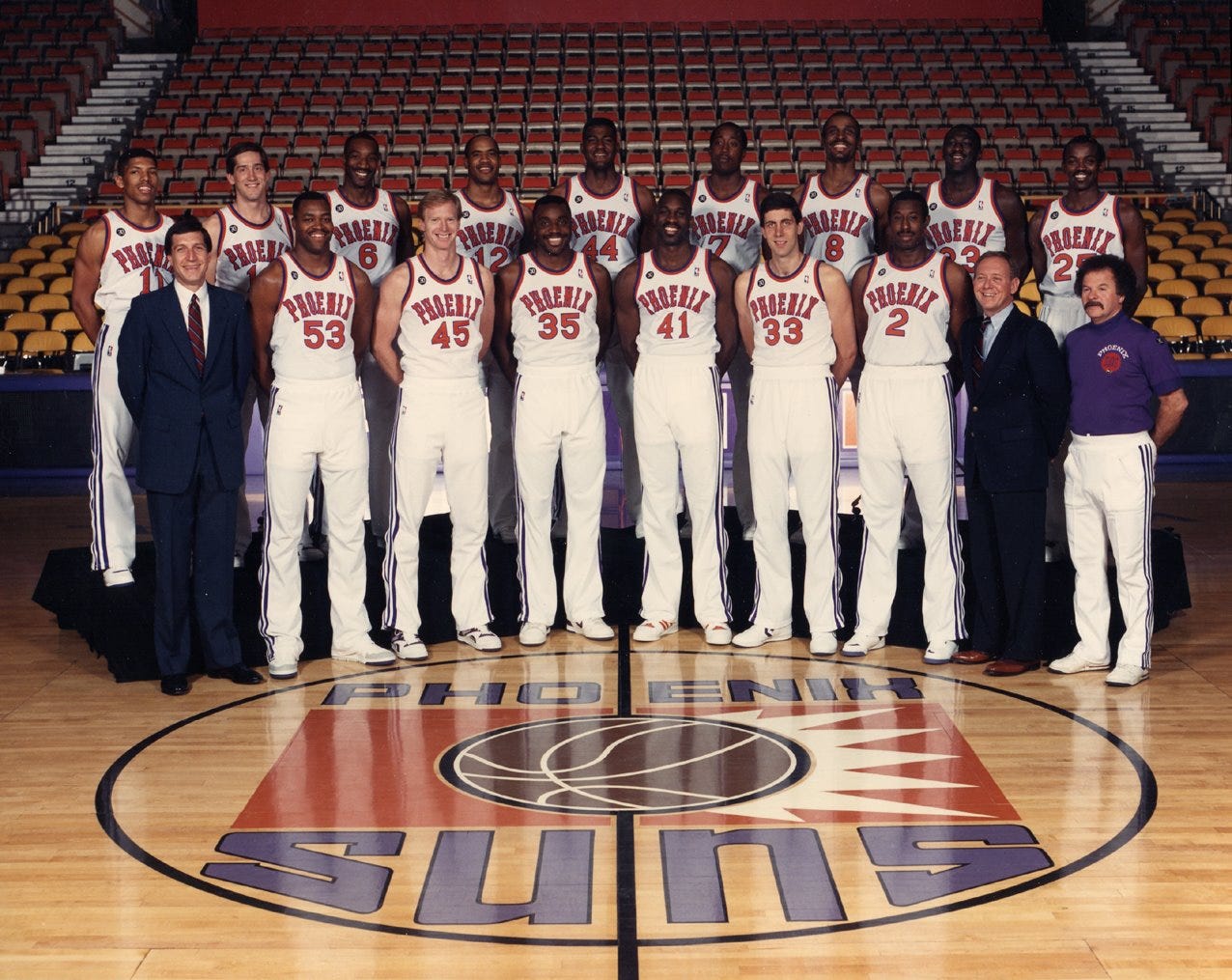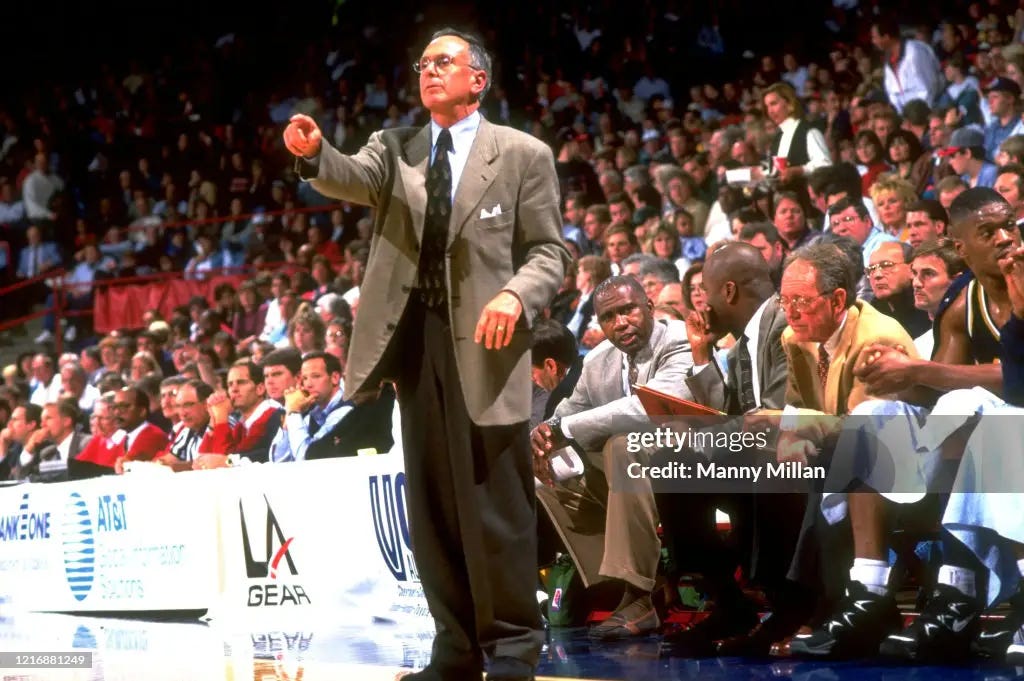Herb Brown's Historic Coaching Career
Learn about Herb Brown’s historic coaching career that spans over 5 decades on almost every level of basketball.
Herb Brown, the older brother of longtime basketball coach, Larry Brown is a retired basketball coach who has over 50 years of experience coaching on the Collegiate, international, CBA, and NBA levels of basketball.
Coach Brown also has won a Gold Medal and two Bronze Medals as the U.S. Head Coach in the Maccabi Games. In 2013, he led the Japan Women’s National Team to its first Gold Medal in 35 years at the 2013 FIBA Asia Championships.
In this article you’ll learn about Coach Brown’s historic coaching career that started in his home state of New York to all around the world, with a few stops in the NBA and you’ll learn about his relationship with his brother, Larry Brown.
For more weekly content like this, please subscribe to “Behind the Coaching”, for the best knowledge about coaches, mentors, and teachers in our sports.
C.W. Post Pioneers (1960–1964)
Herb Brown started his coaching career with the C.W. Post Pioneers men’s basketball team as an assistant coach under George Kaftan. They made one NCAA Division II East Regional playoff appearance in 1962.
Stony Brook Warriors/Patriots (1964–1969)
Coach Brown was named the head coach of the Stony Brook Warriors, later called the patriots. The team is now known as the Seawolves.
He coached the team for 6 seasons, ending his tenure with a 75-75 head coaching record. He won Coach of the Year in 1969.
Return to the C.W. Post Pioneers (1972–1974)
Brown returned to the C.W as their head coach of the Pioneers from 1972-1974, in his first season, the team went 21-5 and won the NCAA Division II East Regional championship.
In his second season, the team went 13-12, not qualifying for any post-season competition.
Brown finished his 2 year head coaching tenure with an overall coaching record of 34-17.
Israel Sabres (1974)
Brown was named the head coach of the Israel Sabres, a European basketball team that was owned by American and Israeli businessmen. The team played for only 1 year and won a championship.
Detroit Pistons (1975–1978)
Brown made his NBA coaching debut with the Detroit Pistons as an assistant coach, later promoted to head coach, succeeding Ray Scott, who was fired in the middle of the season in January 1976. Coach Brown finished the rest of the season with a 33-46 record, 5th in the western conference, and qualified for the playoffs.
The Pistons defeated the Milwaukee Bucks in 3 games in the first round, making it to the conference semi-finals, where they lost in 6 to the Golden State Warriors.
The 1976-1977 was Brown’s first full season as the head coach of the team, they finished 44-38, 5th in the Western Conference for 2 years in a row and once again qualifying for the playoffs. The Pistons were eliminated in the first round by the Golden State Warriors in 3 games.
To start the 1977-1978 season, Coach Brown and guard Kevin Porter had tensions between them. The front office traded Porter to the New Jersey Nets, where Porter led the league in assists. Brown was fired a month later on December 15, 1978 after a 9-15 start to the season. He was replaced by the team’s general manager Bob Kauffman.
Brown had an overall coaching record of 72-74. Afterwards, the team went on a 6 season playoff drought until 1984 under Chuck Daly.
Tucson Gunners (1978–1979)
Brown became the head coach of the Tucson Gunners, a basketball team in Arizona that was part of the Western Basketball Association. The league only played for 1 season, the Gunners won the only championship during the league’s tenure. Brown finished his season with a record of 32-16, first place in the league. He was named WBA Coach of the Year.
Notably on the Gunners’ roster were:
Al Smith: Former ABA player.
Gerald Henderson: Future NBA player.
Jim Boylan: Future Michigan State assistant coach, NBA assistant coach, and 2016 NBA champion with the Cleveland Cavaliers as an assistant.
Mets de Guaynabo (1979)
Brown returned to Puerto Rico to become the head coach of the Mets de Guaynabo, a member of the Baloncesto Superior Nacional.
Houston Rockets (1980–1981)
Coach Brown returned to the NBA and was named an assistant coach on Del Harris’ staff in Houston. The team reached the NBA finals, losing to the Boston Celtics in 6 games.
He notably coached Moses Malone, Rudy Tomjanovich, Calvin Murphy, and Mike Dunleavy Sr.
Indios de Canóvanas (1982–1983)
Brown moved on to become the head coach of the Indios de Canóvanas, winning a championship in 1983, his only season with the team.
Puerto Rico Coquis (1983–1985)
Coach Brown was named the head coach of the Puerto Rico Coquisled, a CBA team located in Puerto Rico. Brown led the team to the playoffs with a CBA-best record of 28-16 in the spring of 1984.
After defeating the Lancaster Lightning in the first round of the playoffs, the Coquis were defeated by Phil Jackson and his Albany Patroons in the semi-finals.
Brown was named CBA Coach of the Year. Center Geff Crompton was named the league’s Most Valuable Player.
Cincinnati Slammers (1985–1987)
Brown became the head coach of the Cincinnati Slammers, an Ohio basketball team that was part of the Continental Basketball Association.
In Brown’s first season, the team went 33-15, first place in the western conference, qualifying for the playoffs. They defeated the Kansas City Sizzlers in the first round in 4 games, the Evansville Thunder in 5 games, but lost to the La Crosse Catbirds in the division finals in 6 games.
In Brown’s second, and the team’s final season, the Slammers finished 25-23, 2nd place in the western conference, qualifying again for the playoffs. They defeated the Topeka Sizzlers (formerly located in Kansas City) in the first round in 6 games, but lost in the second round to the Rockford Lightning in 5 games.
After the ‘86-‘87 season, the Slammers relocated to Iowa under the name of Cedar Rapids Silver Bullets. Brown finished his head coaching tenure with a 58-38 record.
Phoenix Suns (1987–1988)
Brown was named as an assistant coach under John Wetzel for the Phoenix Suns. The ‘87-‘88 Suns season is considered one of the most chaotic seasons of all time.
On April 17, 1987, Suns players James Edwards, Jay Humphries and Grant Gondrezick, and former players Garfield Heard and Mike Bratz. Edwards, Gondrezick and Bratz were charged with three counts of conspiracy to traffic in or possess a narcotic drug, while Humphries and Heard were charged with one count. Other Suns players Walter Davis, William Bedford, Alvin Scott, Johnny High, Don Buse and Curtis Perry were named in the indictments, but were not charged. Other members of the Phoenix community were also investigated.
As a result of the investigation, none of the defendants were taken to trial. Walter Davis was suspended and re-entered a drug rehab program, Edwards and Humphries were required to join a drug counseling program, and Gondrezick pleaded guilty to tampering with a witness and received three-years of probation.
Unfortunately, on August 16, 1987, Suns center Nick Vanos and his fiancée Carolyn Cohen were among 156 killed in the Northwest Airlines Flight 255 crash. Vanos and Cohen, were returning to Phoenix when the flight crashed after takeoff due to pilot error.
What felt like the longest season, the team finished 28-57, missing the playoffs. Brown notably coached Walter Davis, Eddie Johnson, Kevin Jackson, Jeff Hornacek, Craig Hodges, Alvan Adams, and Kenny Gattison.
Joventut Badalona (1989–1990)
Brown was named the head coach of Joventut Badalona. The team finished in 2nd position with a record of 29-15 and won the FIBA Korać Cup.
Saski Baskonia (1990–1992)

Brown then became the head coach of Saski Baskonia, a basketball team that plays in Liga Endesa and EuroLeague. The team reached 2 quarter finals rounds during his tenure. Brown had an overall coaching record of 66-31 in 2 seasons with the team.
Valencia (1995)
Coach Brown became head coach of Valencia Basket, a basketball club located in Spain. In his only season with the team, they were 2nd position and had a record of 28-10,
Indiana Pacers (1995–1996)
Returning to the NBA for a 3rd time, Coach Brown became an assistant coach for his younger brother, Larry Brown on the Indiana Pacers. The Pacers were ranked 13th best overall defense in the league and qualified for the playoffs with a record of 52-30. The team were eliminated in the first round by the Atlanta Hawks in 5 games.
He normally coached Reggie Miller, Rik Smits, Mark Jackson, Eddie Johnson, and Fred Hoiberg.
Baltimore Bayrunners (1999–2000)
Brown then joined the Baltimore Bayrunners, part of the IBL, as their head coach and vice president of basketball operations for half of the season. Brown was fired after the BayRunners lost 20 of their first 30 games.
The Bayrunners moved to the Continental Basketball Association (CBA) after the season.
Philadelphia 76ers (2001–2002)

Brown became an assistant coach for the 76ers under Larry Brown. The 76ers were ranked 3rd overall best defense in the league. The team qualified for the playoffs, but were eliminated in the first round by the Boston Celtics in 5 games.
He notably coached Allen Iverson, Dikembe Mutombo, Jabari Smith, and Eric Snow.
Portland Trail Blazers (2002–2003)
Brown spent 1 season as an assistant coach for the Portland Trail Blazers under Maurice Cheeks. The team was ranked the 15th best in the league and reached the first round of the playoffs, losing to the Dallas Mavericks in 7 games.
He notably coached Scottie Pippen, Zach Randolph, Arvydas Sabonis, Damon Stoudamire, and Rasheed Wallace.
Return to the Detroit Pistons (2003–04)
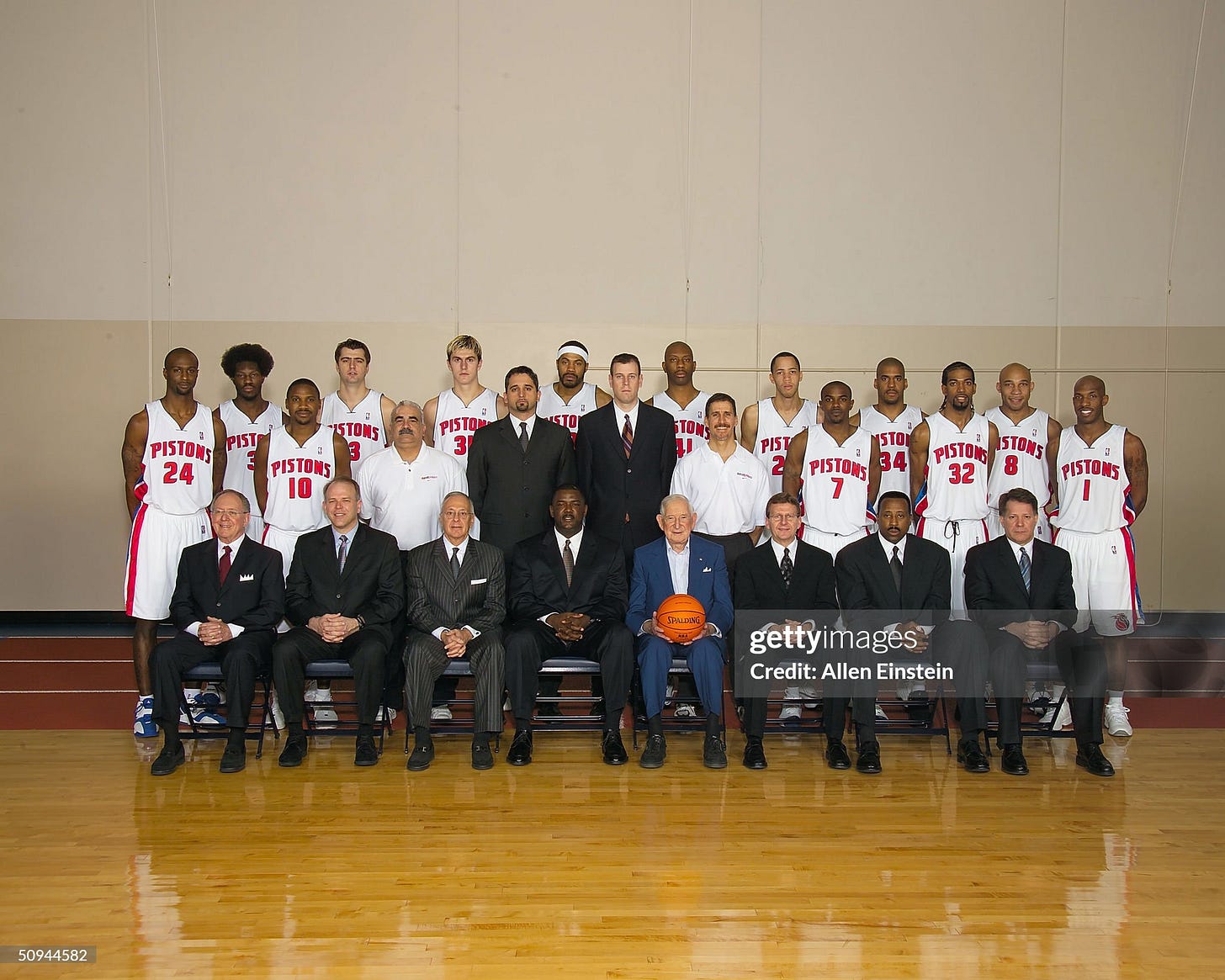
Coach Brown reunited with the Detroit Pistons as an assistant coach under Larry Brown. The Pistons were ranked the 2nd best overall defense in the league and won the NBA championship.
He notably coached Chauncey Billups, Rasheed Wallace, Ben Wallace, Richard Hamilton, Tayshaun Prince, and Darvin Ham.
Atlanta Hawks (2004–2007)
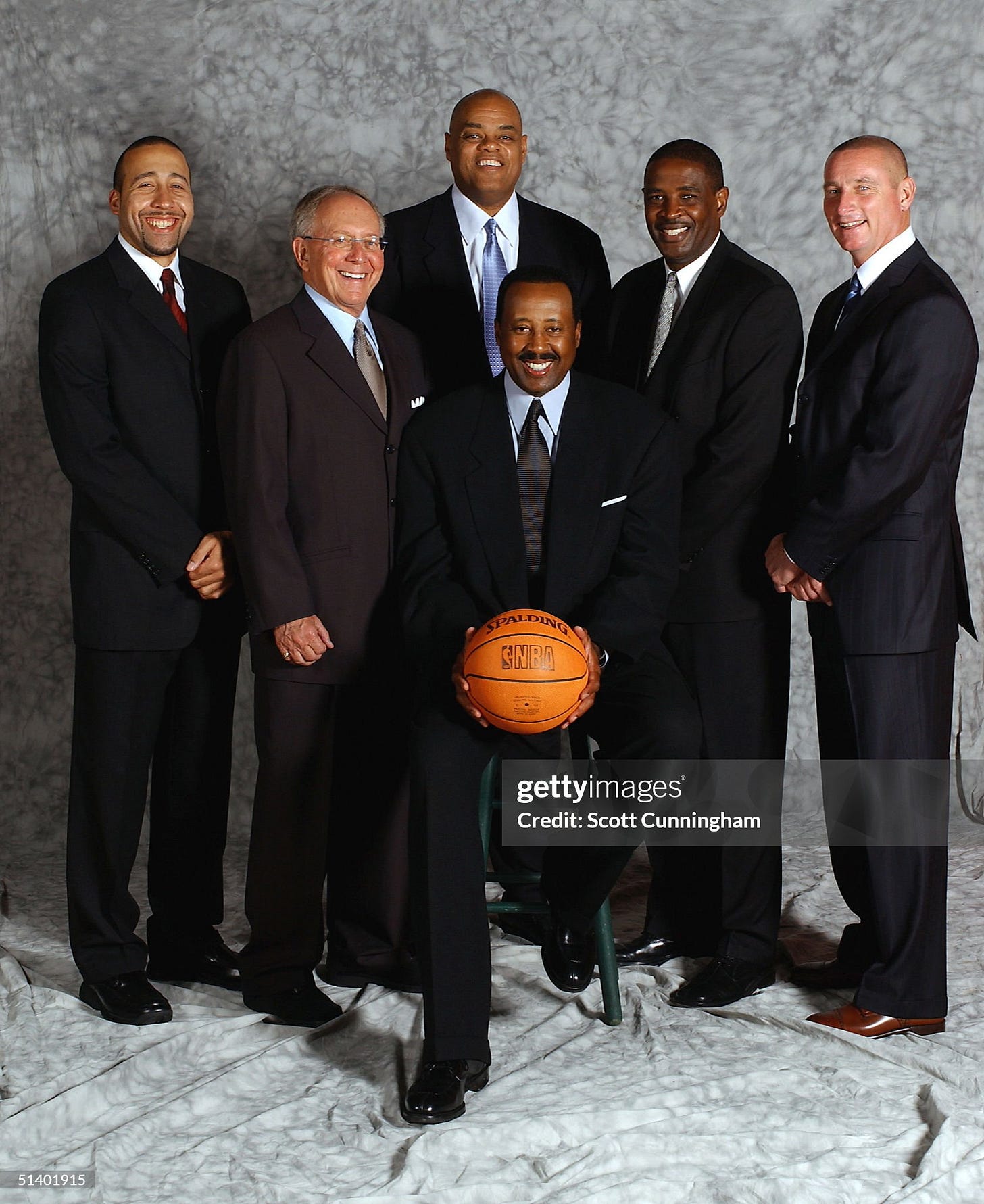
Brown became an assistant coach under Mike Woodson for the Atlanta Hawks. Although the team’s record slightly improved every year under Woodson, the team did not qualify for the playoffs until 2008, a year after Brown had left.
He notably coached Al Harrington, Tyronn Lue, Royal Ivey, Kevin Willis, Tom Gugliotta, Zaza Pachulia, Joe Johnson, and Josh Smith
Charlotte Bobcats (2008–2011)
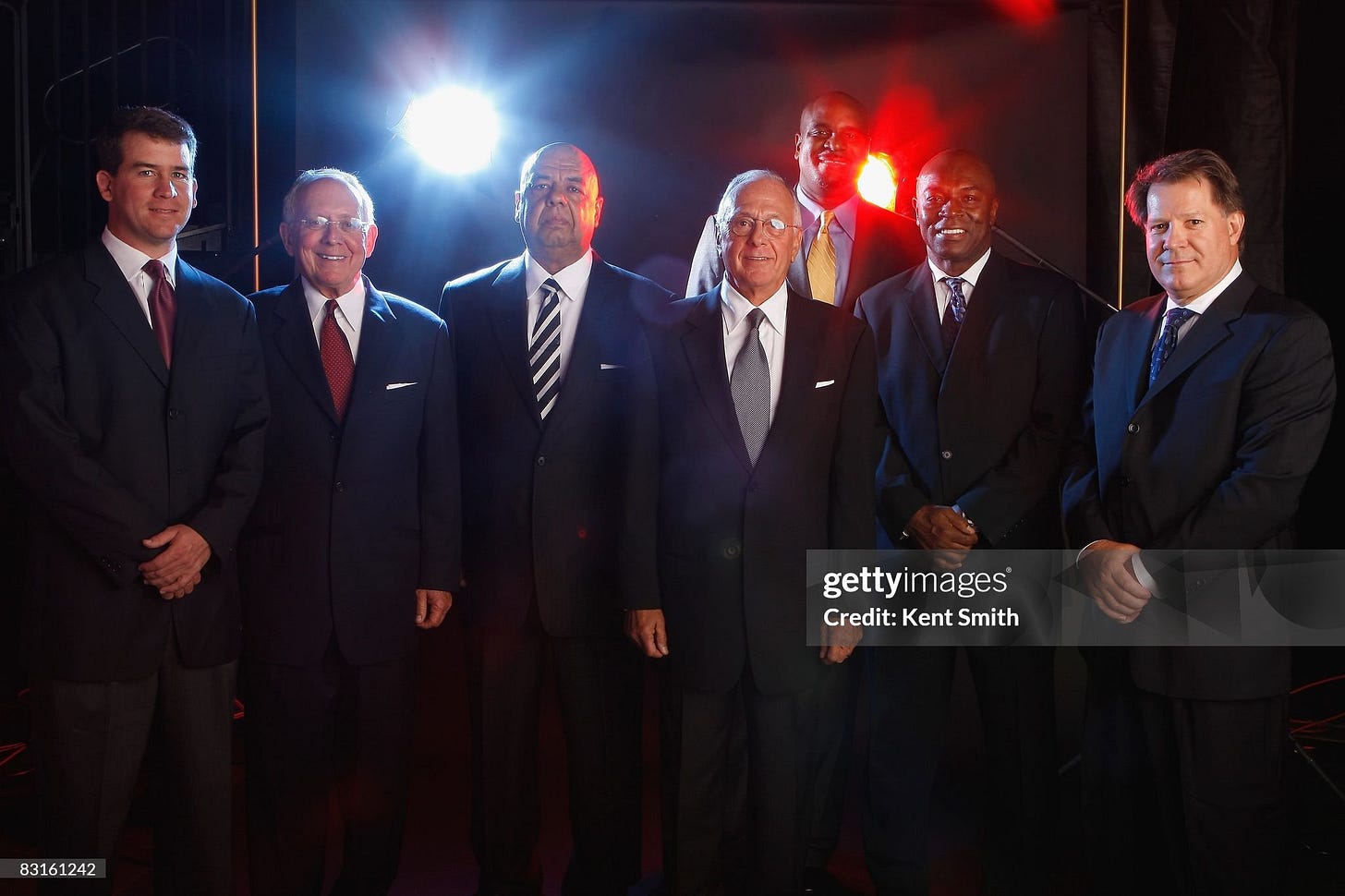
Coach Brown reunited with Larry Brown for a 4th time as his one of his assistant coaches for the Charlotte Bobcats, now known as the Charlotte Hornets.
The team only made it to the playoffs once under Larry Brown in 2010, losing in the first round to the Orlando Magic in 4 games. After Larry and the Bobcats parted ways on December 22, 2011, the entire coaching staff with the exception of Jeff Capel II, were fired.
Brown notably coached Juwan Howard, Gerald Wallace, Raymond Felton, Boris Diaw, Stephen Jackson, D. J. Augustin, Shaun Livingston, and Kwame Brown.
Portland Pilots (2014–2015)
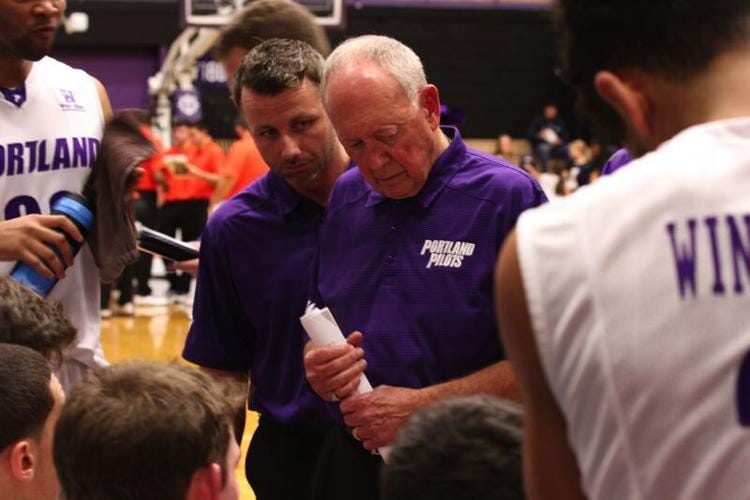
3 years later, Brown became an assistant under Eric Reveno at the University of Portland’s men’s basketball team, the Pilots. The team finished with a 17-16 record, reaching the first round of the CollegeInsider.com Postseason Tournament, but lost to Sacramento State.
This was Brown’s final coaching position before retiring in 2015.
Larry‘s Relationship with Herb
We’ve heard about the father-son coaching duos in basketball, but it’s rare we see 2 brothers coach against each other, let alone together. Herb was one of basketball’s longest tenured coaches before retiring and has made an impact literally all around the world.





